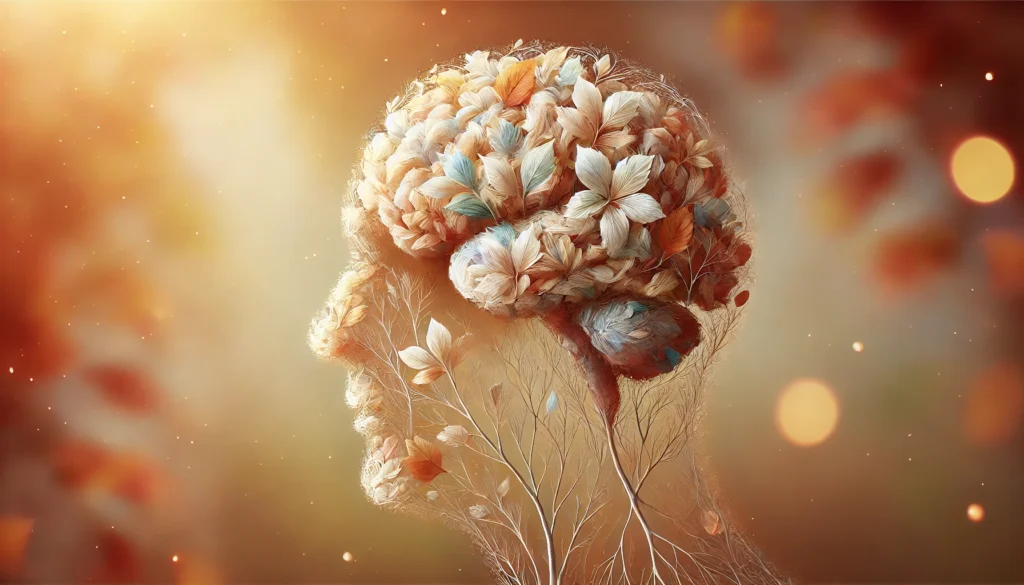Dementia is an umbrella term that describes a range of symptoms associated with cognitive impairment. It affects memory, thinking, and social abilities severely enough to interfere with daily life. While it is not a specific disease, dementia encompasses a variety of conditions. Understanding the different types of dementia is crucial for recognizing and managing these conditions effectively.
You may also like: Tips to Improve Low Average Memory Performance
Different Types of Dementia
Dementia encompasses several distinct types, each with unique characteristics and implications for the affected individuals.
- Alzheimer’s Disease: As the most prevalent form, Alzheimer’s accounts for 60-80% of dementia cases. It is primarily characterized by the formation of amyloid plaques and neurofibrillary tangles in the brain, which progressively impair cognitive function.
- Vascular Dementia: This type often arises following a stroke or other conditions that impede blood flow to the brain. It can lead to abrupt cognitive changes and is marked by difficulties in thinking and reasoning.
- Lewy Body Dementia: Associated with abnormal protein deposits known as Lewy bodies, this type of dementia presents symptoms that often overlap with Parkinson’s disease, including movement disorders and cognitive fluctuations.
- Frontotemporal Dementia: This type involves the degeneration of nerve cells in the brain’s frontal and temporal lobes, affecting personality, behavior, and language skills. It tends to occur at a younger age than other dementias.
- Mixed Dementia: In some cases, individuals exhibit brain changes associated with more than one type of dementia, such as Alzheimer’s and vascular dementia. This can lead to a complex array of symptoms.
Cognitive and Behavioral Symptoms
Dementia manifests through a wide range of cognitive and behavioral symptoms, which can vary significantly depending on the type and stage of the condition.
- Memory Impairment: One of the most recognizable signs of dementia is memory loss, particularly short-term memory. Individuals may forget recent events, appointments, or conversations.
- Executive Dysfunction: Many forms of dementia affect planning, decision-making, and problem-solving abilities. This can make it challenging to complete tasks that require multiple steps.
- Language Difficulties: As dementia progresses, individuals may struggle with finding the right words, following conversations, or understanding written and spoken language.
- Behavioral Changes: Changes in mood, personality, and behavior are common. People with dementia might become more irritable, withdrawn, or exhibit inappropriate behavior.
Do All Elderly People Get Dementia?
Not all elderly people develop dementia. While age is a significant risk factor, many individuals maintain cognitive health throughout their lives. Understanding risk factors can help identify those who might be more susceptible.
- Age-Related Risks: As individuals age, the likelihood of developing dementia increases. However, it is not an inevitable part of aging. Many people live into their 90s or beyond without significant cognitive decline.
- Genetic Factors: Family history plays a role in dementia risk. Certain genetic mutations can increase susceptibility, although lifestyle factors also significantly influence outcomes.
- Lifestyle and Health: Maintaining a healthy lifestyle through diet, exercise, and mental stimulation can help reduce the risk of dementia. Conditions like heart disease, diabetes, and obesity also influence cognitive health.
- Chronic Conditions: Chronic health conditions, such as hypertension and diabetes, can impact brain health. Effective management of these conditions may reduce the risk of developing dementia.
The Hallmarks of Alzheimer’s Disease
Alzheimer’s is distinguished by specific changes in the brain. Two key features are:
- Amyloid Plaques: Clusters of protein fragments that accumulate between nerve cells are considered a hallmark of Alzheimer’s. These plaques disrupt cell communication and trigger an immune response that results in inflammation and cell death.
- Neurofibrillary Tangles: Twisted fibers of another protein, tau, build up inside cells. These tangles disrupt the transport system within neurons, leading to cell dysfunction and death.
These changes disrupt communication between neurons, leading to the loss of function and eventual cell death, which manifests as the symptoms of Alzheimer’s.
Symptoms of Alzheimer’s Disease
Alzheimer’s symptoms are often mistaken for typical aging. However, as the disease progresses, symptoms become more pronounced, including:
- Memory Loss Affecting Daily Life: Forgetting important dates, events, or repeatedly asking for the same information can be an early sign of Alzheimer’s.
- Challenges in Planning or Problem-Solving: Individuals may struggle to develop and follow a plan or work with numbers, making tasks such as managing finances difficult.
- Difficulty Completing Familiar Tasks: Daily tasks, like driving to a familiar location or remembering the rules of a favorite game, may become challenging.
- Confusion with Time or Place: Those with Alzheimer’s can lose track of dates, seasons, and the passage of time, or they may forget where they are or how they got there.
- New Problems with Words in Speaking or Writing: People may have trouble following or joining a conversation and may stop in the middle of a sentence or repeat themselves.
- Misplacing Things and Losing the Ability to Retrace Steps: They might put things in unusual places and lose the ability to go back over their steps to find them again.

Progression and Stages
Understanding the stages of Alzheimer’s can help in managing and anticipating the needs of those affected.
- Early Stage: In the early stage, individuals may function independently. They might still drive, work, and participate in social activities, but they may feel they are having memory lapses.
- Middle Stage: This stage is typically the longest and can last for many years. As the disease progresses, the person with Alzheimer’s will require more care.
- Late Stage: In the final stage, individuals lose the ability to respond to their environment, carry on a conversation, and, eventually, control movement. They may need extensive help with daily activities.
What Contributes to Dementia?
Dementia results from a combination of genetic, environmental, and lifestyle factors. Some risk factors for Alzheimer’s and other dementias include:
- Age: The risk increases significantly after age 65. However, Alzheimer’s is not just a disease of old age, as younger-onset Alzheimer’s can occur in people in their 40s or 50s.
- Family History: Having a parent or sibling with Alzheimer’s increases risk, especially if more than one family member has been diagnosed.
- Genetics: Certain genes have been linked to Alzheimer’s. The presence of the APOE-e4 gene, for example, increases the risk of developing the disease.
- Head Injury: Past trauma to the head may increase the risk. Studies show that moderate or severe traumatic brain injury increases the risk of developing Alzheimer’s.
- Heart Health: Conditions like high blood pressure, diabetes, and high cholesterol can affect brain health. Maintaining cardiovascular health through diet and exercise can mitigate these risks.
Environmental and Lifestyle Factors
Environmental and lifestyle factors play a crucial role in the development and progression of dementia.
- Diet and Nutrition: A diet rich in antioxidants, vitamins, and healthy fats can support brain health. Diets like the Mediterranean diet are associated with a lower risk of Alzheimer’s.
- Physical Activity: Regular exercise helps maintain healthy blood flow to the brain and encourages the growth of new brain cells.
- Mental and Social Engagement: Engaging in mentally stimulating activities and maintaining social connections are associated with a reduced risk of cognitive decline.
- Sleep Patterns: Poor sleep can lead to problems with memory and thinking. Chronic sleep issues have been linked to an increased risk of Alzheimer’s.
Can Some Types of Dementia Improve Memory?
While most forms of dementia are progressive and irreversible, some conditions that mimic dementia can be treated. For instance, depression, medication side effects, or vitamin deficiencies might cause symptoms that improve with treatment.
- Reversible Causes: Certain conditions, such as thyroid problems, vitamin B12 deficiency, or infections, can produce dementia-like symptoms that are reversible with proper medical treatment.
- Medications: Some medications can cause side effects that mimic dementia. Adjusting these medications under a healthcare provider’s guidance can alleviate symptoms.
- Mental Health: Conditions like depression and anxiety can impair cognitive function. Treating these conditions can lead to significant improvements in memory and other cognitive abilities.
Current Trends and Future Implications
Research into Alzheimer’s and dementia is ongoing, with scientists exploring various avenues for treatment and prevention. Advances in technology, such as brain imaging and genetic analysis, offer promising insights into these conditions.
Innovations in Treatment
Recent advancements in understanding Alzheimer’s have led to new approaches in treatment and management.
- Disease-Modifying Treatments: Efforts are underway to develop drugs that can alter the disease’s progression. These include targeting amyloid plaques and tau tangles.
- Non-Pharmacological Interventions: Therapies involving cognitive exercises, music, and art therapy have shown promise in improving quality of life for individuals with Alzheimer’s.
- Early Diagnosis Tools: Improved imaging techniques and biomarkers are helping in the early detection of Alzheimer’s, allowing for earlier intervention and management.

Lifestyle and Prevention
While there is no guaranteed way to prevent Alzheimer’s, certain lifestyle choices can help reduce risk:
- Regular Exercise: Physical activity boosts blood flow to the brain. Activities like walking, swimming, or yoga can enhance cognitive function and delay the onset of symptoms.
- Healthy Diet: A diet rich in fruits, vegetables, and whole grains supports brain health. Omega-3 fatty acids found in fish may also be beneficial.
- Mental Stimulation: Engaging in puzzles, reading, or learning new skills keeps the mind active. Lifelong learning and cognitive training can help maintain brain health.
- Social Engagement: Maintaining social connections supports cognitive function. Participating in community activities, clubs, or volunteer work can be beneficial.
Future Directions in Research
The future of Alzheimer’s research is promising, with several potential breakthroughs on the horizon.
- Genetic Research: Understanding the genetic basis of Alzheimer’s could lead to targeted therapies that prevent or treat the disease.
- Immunotherapy: Researchers are exploring ways to harness the immune system to clear amyloid plaques from the brain.
- Public Health Initiatives: Efforts to increase public awareness and promote brain health across the lifespan can help reduce the incidence of dementia.

Conclusion
Alzheimer’s disease remains the most prevalent form of dementia, posing significant challenges for individuals and families. Understanding the nature and progression of Alzheimer’s, alongside lifestyle interventions, can empower those affected and those at risk to take proactive steps. As research continues, hope remains for more effective treatments and ultimately a cure for this debilitating disease.
Through knowledge and awareness, we can better support those facing the challenges of Alzheimer’s and work towards a future where dementia no longer casts a shadow over our aging population. By promoting brain health and supporting research efforts, we move closer to a world where Alzheimer’s is not a foregone conclusion but a challenge to be met with innovation and compassion.
Further Reading:
Important Note: The information contained in this article is for general informational purposes only, and should not be construed as health or medical advice, nor is it intended to diagnose, prevent, treat, or cure any disease or health condition. Before embarking on any diet, fitness regimen, or program of nutritional supplementation, it is advisable to consult your healthcare professional in order to determine its safety and probable efficacy in terms of your individual state of health.
Regarding Nutritional Supplements Or Other Non-Prescription Health Products: If any nutritional supplements or other non-prescription health products are mentioned in the foregoing article, any claims or statements made about them have not been evaluated by the U.S. Food and Drug Administration, and such nutritional supplements or other health products are not intended to diagnose, treat, cure, or prevent any disease.


